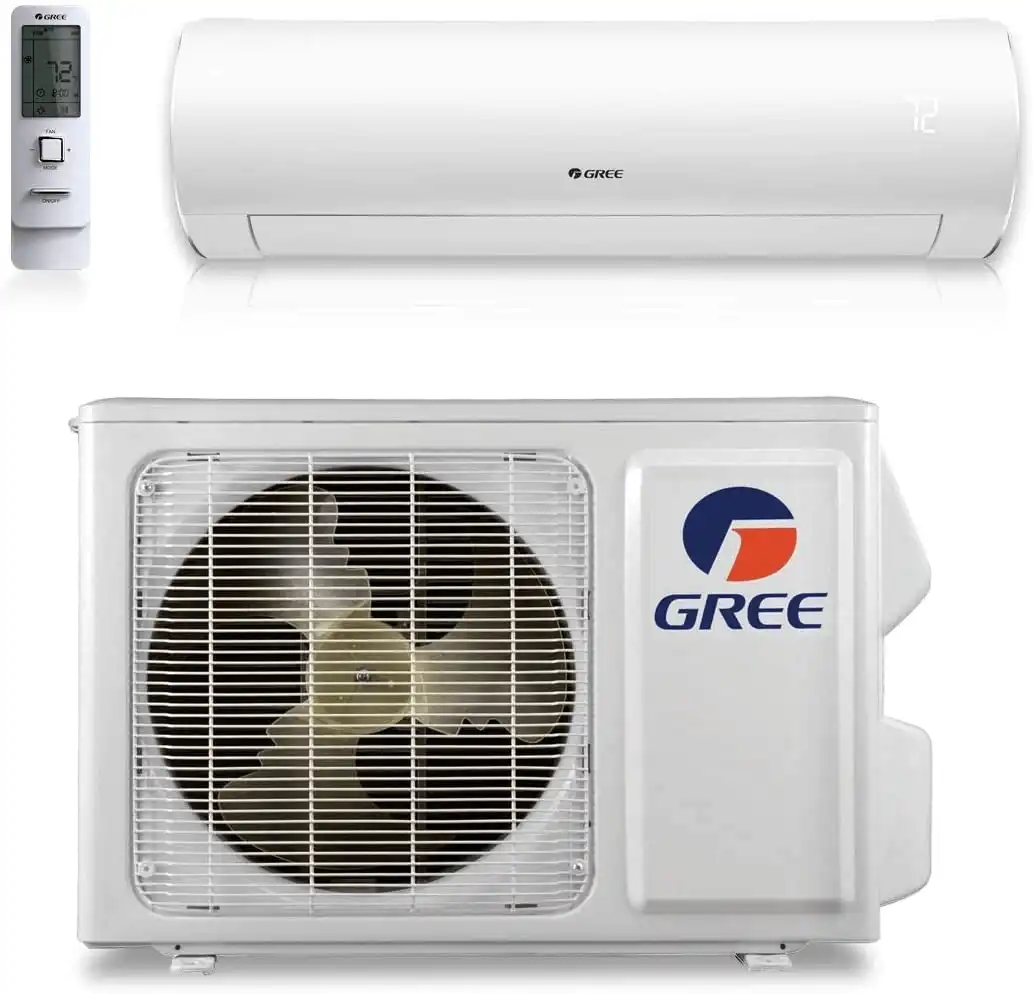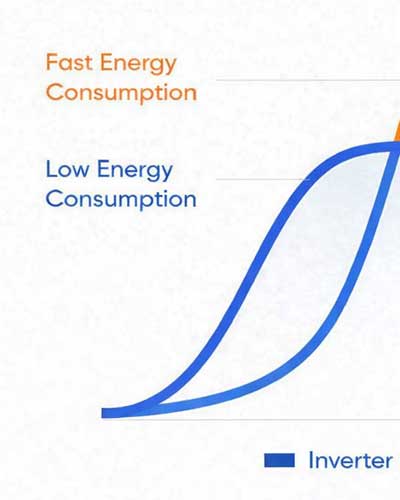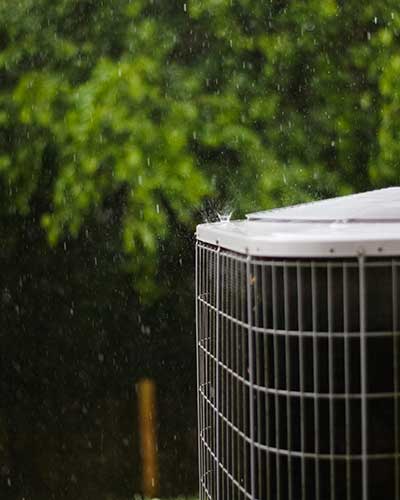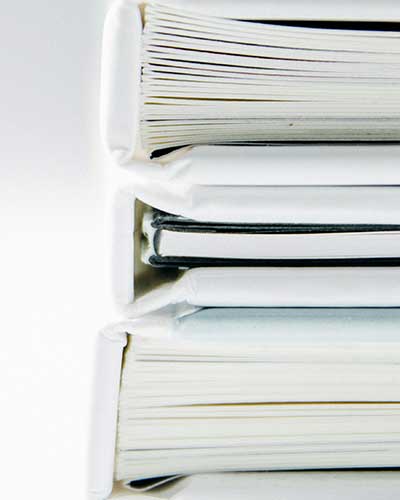
How Heat Pumps Work in Summer: A Guide for Contractors and Homeowners
When outdoor temperatures get hot, homeowners and commercial tenants rely heavily on indoor cooling systems to stay comfortable. But many don’t understand how their heat pumps work in the summertime. As an HVAC contractor, you’ll want to make sure customers have an idea of how their systems work, and what they can do to keep them functioning properly while it’s hot out. This comprehensive guide provides important information about heat pump mini-split systems during summertime.
What is a Heat Pump?
Essentially, a heat pump operates using a process called heat transfer by moving heat from one place to another, using refrigerant. The heat pump consists of an indoor air handler and an outdoor compressor, connected through a conduit on an exterior wall. The indoor unit includes an evaporator coil, while the outdoor unit contains a condenser coil and a fan. During cooler months while a heat pump is in heating mode, the heat pump draws heat from the outside air into its evaporator, which is filled with refrigerant. The refrigerant absorbs the heat, causing it to evaporate and turn into a high-pressure gas. The compressor then further pressurizes the refrigerant, increasing its temperature before sending it to the indoor unit's condenser. The condenser coil releases the heat from the refrigerant to the indoor air, which is then circulated throughout your home as the refrigerant heads back to the outdoor unit to repeat the process.
How Do Heat Pumps Work In The Summer?
During summer, the heat transfer process is reversed, allowing the heat pump to function as an air conditioner. When it’s hot outside and a heat pump is switched into cooling mode, the system's low-pressure liquid refrigerant passes over the evaporator coil, absorbing heat from indoor air at the indoor air handler.
During this process, the refrigerant increases its pressure and evaporates into a gas, which carries the heat outdoors through a copper line and releases it outside through the condenser coil. When that heat is released, the refrigerant reverts to a low-pressure liquid, circulates back into the home through a refrigerant line, and repeats the process. Consequently, as the air inside the home is cooled and it loses moisture, which condenses onto the evaporator coil. This reduces indoor humidity levels along with cooling off the space.
Are Heat Pumps Efficient in the Summer?
Now, you might be wondering, "How efficient are heat pumps in the summer?" Great question! The answer, simply put, is very. When compared to traditional air conditioners, GREE heat pump mini-split systems can be significantly more energy-efficient, while providing better cooling because they utilize inverter technology. Unlike traditional HVAC systems, which turn on and off at full power, inverter systems can adjust their output to match your exact needs. Inverter systems leverage a variable-speed compressor that can ramp up or slow down when needed. While the temperature is mild, it conserves energy by running at a reduced speed while still ensuring comfort. When temperatures get hotter or colder, the compressor ramps up to maintain the desired climate. Furthermore, mini-split inverter heat pumps integrate sophisticated sensors that continually survey the surrounding conditions, adjusting output as needed. This guarantees optimal system efficiency while providing the utmost comfort when you need it. Heat pumps are efficient in the colder months as well. While in heating mode, instead of generating heat (which requires a lot of energy), heat pumps simply extract heat from the outside air and transfer it into the space, which takes much less energy than creating heat through combustion. Additionally, traditional ac systems lose a lot of their heat through leaky ductwork, while heat pump mini-split systems are ductless.
While heat pumps are ultra-efficient cooling sources in the heat, circumstances can lead to them freezing up in the summertime, it’s important for contractors to know how to address this issue.
Troubleshooting a Freezing Heat Pump
Freezing can occur in indoor or outdoor heat pump components, including on the coils and within the copper lines. In the winter, ice can build up and will hinder a heat pump’s heat-exchange process, which could lead to decreased efficiency or even to complete breakdown. Heat pumps may freeze during summer operation due to three primary factors: low refrigerant levels, restricted airflow, and a dirty evaporator coil.
Low Refrigerant Levels and Leaks Cause Heat Pump Icing
This is the most common cause of summer freezing. Inadequate refrigerant levels cause system pressure to drop, decreasing the coil’s temperature to lower than normal levels, which leads to icing. Refrigerant levels should be checked and lines inspected for leaks by a licensed HVAC contractor.
Restricted Airflow Can Cause Heat Pump Icing
A dirty air filter is the most common cause of restricted airflow in any heating and cooling system. When the air filter isn’t inspected and changed often enough, it puts a significant strain on the system. This increases overall wear and tear, while decreasing efficiency and lifespan.
A Dirty Evaporator Coil Can Cause Heat Pump Icing
If the heat pump’s evaporator coil gets too dirty, ice can form and accumulate, causing the cooling process to become less efficient and effective or to shut down. Although some homeowners can clean the evaporator coil themselves, it’s tricky, dirty work, with great potential for damaging the unit if not done correctly, it’s ideal to leave this to the HVAC contractor.
Heat Pump Energy Efficiency Tips for Summer
Merely installing and using an inverter heat pump for home cooling automatically saves on energy costs. However, homeowners can save even more if they consider a few additional measures.
Optimal Heat Pump Settings for Summer
During the summer months, the ideal setting for your heat pump is around 78 degrees Fahrenheit (25.5 degrees Celsius) according to the US Department of Energy. This setting allows the heat pump to efficiently cool your home while reducing humidity and energy consumption. It's important to remember that while a lower setting might seem like it would provide more comfort, it could lead to longer running times and increased energy costs. Therefore, maintaining an optimal balance between comfort and energy efficiency is key.
Keep the Home Properly Insulated
In an under-insulated home, the heat pump will run longer and more frequently, so it’s important for homeowners to make sure their insulation is up to date. Insulation types and amounts differ depending on the home’s size and the climate where it’s located. Keeping doors and windows shut while heat pumps are running, and going through a space to eliminate leaks can also go a long way to maximizing efficiency.
Regular Professional HVAC Maintenance
Modern AC/heating systems are complex machines that require regular servicing for optimal performance. For best results, an AC/heating system should be serviced twice yearly—once during spring and once in the fall. Filters should be changed at least every six weeks, and coils should be inspected regularly to determine if they need to be cleaned.
Pump Out the Heat, Ramp Up the Efficiency and Comfort
By understanding how heat pumps work, optimizing settings, and performing regular maintenance, HVAC contractors can help their customers enjoy cool comfort without breaking the bank. Remember, a well-maintained heat pump system will provide optimal performance and energy efficiency. By implementing the tips recommended in this comprehensive guide and educating their customers, HVAC contractors can ensure that homeowners stay cool and comfortable all summer long.





